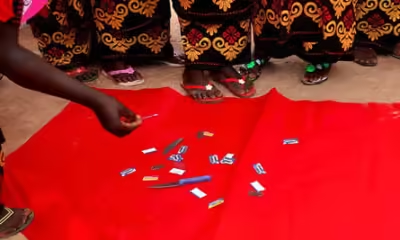The Gambian government has revealed that it is in a “far advanced” stage of legal action against Indian drugmaker, Maiden Pharmaceuticals, producers of a cough syrup that killed scores of children last year.
The legal battle will also include local distributors of the toxic cough syrups.
Gambia’s government said in the statement that it was pursuing potential redress through engagement with the Government of India and “is currently benefiting from legal advice from a top-tier international law firm.”
The World Bank is also assisting the Gambia in the construction of a laboratory. “There is an urgent need for a quality control laboratory to conduct proper testing on all medications and related items imported into the nation,” the statement read.
Barely a month after the World Health Organization (WHO) issued a global alert over four brands of cough syrups, saying they could be linked to acute kidney damage, reports emerged of deaths of babies after the use of some of the WHO-marked drugs.
Last year, acute renal damage claimed at least 70 children in the Gambia, the majority of whom were under 5 years old. The deaths, according to a government task group that looked into them, were “a direct result” of tainted Indian-imported cough and cold medicines.
Meanwhile, the families of 20 of the children have already sued the two companies, as well as Gambian authorities, and have rejected monetary compensation. Last year, the chairperson of the grieving families, Ebrima Sanyang said the $20,000 (£17,000) offered by the Ministry of Gender was “an insult to the victims”.
In the meantime, Indian pharmaceutical company, Maiden Pharmaceuticals has denied any wrongdoing, while the Indian government claims tests on the drugs revealed they were not tainted.


 Politics2 days ago
Politics2 days ago
 VenturesNow2 days ago
VenturesNow2 days ago
 Metro2 days ago
Metro2 days ago
 Musings From Abroad2 days ago
Musings From Abroad2 days ago

























